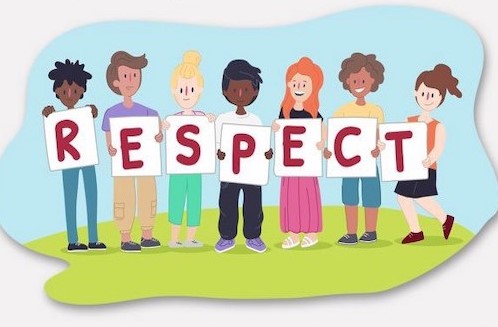Traits such as kindness, patience, love, forgiveness, and integrity were inherent in our character, but these qualities have become increasingly rare in our society
By Syed Mustafa Ahmad
The erosion of values in our society is a matter of collective mourning and introspection. Each nation possesses a set of fundamental principles that serve as the cornerstone of its glory, distinguishing it from other valueless societies. Historically, no nation has consciously or unconsciously disregarded these values to the extent of becoming entirely valueless. However, both apparent and concealed factors have led to the gradual loosening of our societal values, with no certain path of return. Regrettably, values have receded into oblivion, assuming a secondary role in our society. The Gradual Loosening of Societal Values
This decline is not an isolated event but a deep-rooted malaise that has been festering for numerous years. Once upon a time, every nook and corner of the picturesque Valley of Kashmir boasted values that garnered worldwide admiration and adherence. Traits such as kindness, patience, love, forgiveness, and integrity were inherent in our character. Sadly, these qualities have become increasingly rare in our society. From adults to children, everyone seems to be grappling with the same predicament. Consequently, it becomes imperative to explore the underlying causes that have contributed to the erosion of values in our society.

There are several factors contributing to the erosion of values in our society, and the first one is materialism. Our relentless pursuit of accumulating wealth and possessions has disconnected us from the essence of values. The insatiable greed for profit has transformed us into mere machines, indifferent to the importance of values. Values, with their spiritual and religious significance, contribute to the development of a well-rounded individual. However, in today’s world driven by a free-market economy, the emphasis is on hard work and monetary gain, as money is perceived to bring happiness and comfort. Unfortunately, values do not directly address immediate material needs, leaving us feeling uneasy. Consequently, values lose their significance, and even those who are considered the pinnacle of creation become mere shells of their former selves.
Values, although they may cause temporary discomfort, have profound long-term effects. However, when faced with adversity and a lack of purpose, individuals often choose science and technology over values, sacrificing the latter at the altar of comfort and luxury.
The second factor is science and technology. In our pursuit of a comfortable life, the focus has shifted towards the advancements of science and technology. While they have their own merits and can bring happiness, they often disregard the importance of values. Values, although they may cause temporary discomfort, have profound long-term effects. However, when faced with adversity and a lack of purpose, individuals often choose science and technology over values, sacrificing the latter at the altar of comfort and luxury. After all, why should a value enthusiast endure hardship when a valueless person can accumulate wealth effortlessly?
The third factor is the secular approach. Society has embraced secularism to such an extent that it perceives religious principles and codes of conduct, regardless of their antiquity or novelty, as lacking value. In the name of secularism, we have surpassed all boundaries and reside in a liberal zone where people are free to do as they please. This has given rise to a negative concept of freedom as well. Just as a driverless vehicle leads to nowhere, our society finds itself in a similar predicament. We live contentedly in a self-created secular world, basking in our imagined comfort and convenience.
The fourth factor is the emergence of a godless society. Many believe that maintaining the balance of the world does not require the presence of a divine entity and that life operates autonomously. This perspective eliminates the need for surveillance, as individuals are free to create their own destinies. Life is seen as a pursuit of momentary pleasure, with no prospect of resurrection. In such a mindset, values lose their significance. Belief in the Hereafter, on the other hand, instils a sense of consciousness, encouraging careful decision-making and mindful interactions with others. However, when this belief evaporates from our minds and lives, we become directionless and start trampling upon cherished values, leading to chaos and confusion.

The fifth and final factor is the distortion of religions. Every religion imparts a code of conduct in its teachings. However, self-proclaimed champions of religions often manipulate these principles for personal gain. Rituals and customs hold little value unless accompanied by a pure heart and soul. Our senses and faculties, including our eyes, ears, tongue, and skin, must adhere to ethical guidelines at all times. Rituals serve a specific purpose, but genuine life and the embodiment of values lie in caring for others and harbouring positive thoughts. Religions aim to preach values in order to foster a harmonious and liveable society.
Amidst the prevailing chaos and confusion, it is imperative to recognize the pressing need to embrace a life rooted in values. In this tumultuous landscape, the humanities and values have a pivotal role to play. For a society to be considered civilized, the adherence to values holds paramount importance. History has shown that genuine progress is unattainable for a community devoid of values. Therefore, it is crucial for us to become torchbearers of a value-centric society by upholding the principles that were once our esteemed badges of honour. Let us make a resolute commitment to wholeheartedly embrace a life guided by values, striving to embody their essence in every aspect of our existence.
The views expressed in this article are solely those of the author and do not necessarily reflect the opinions or views of this Magazine.
Leave a Reply